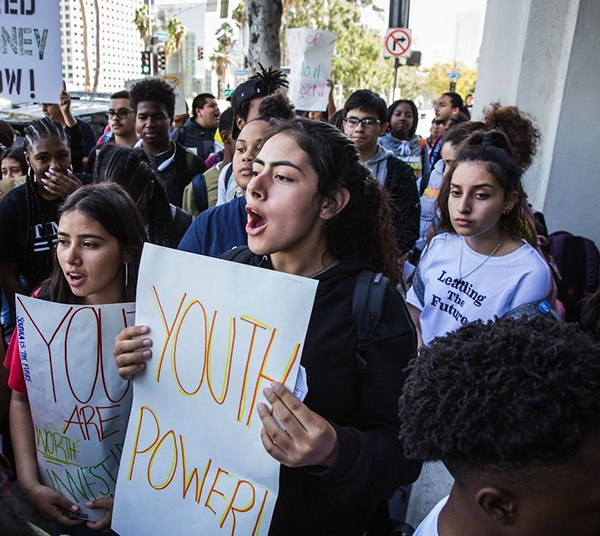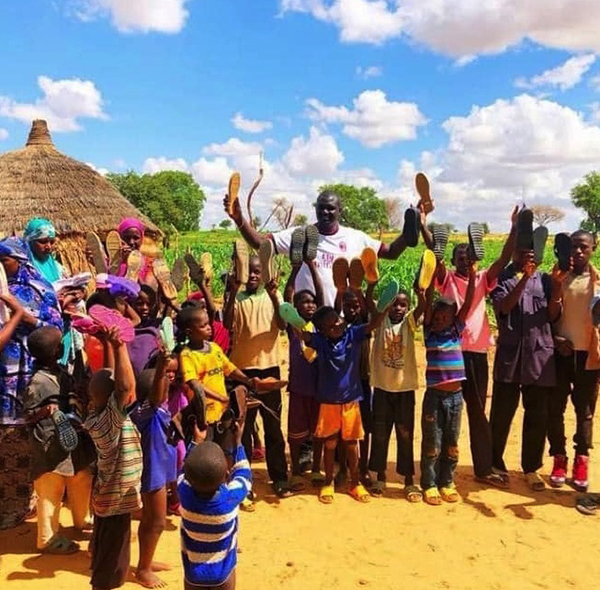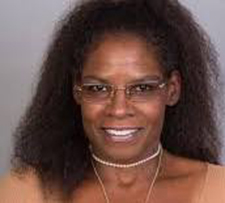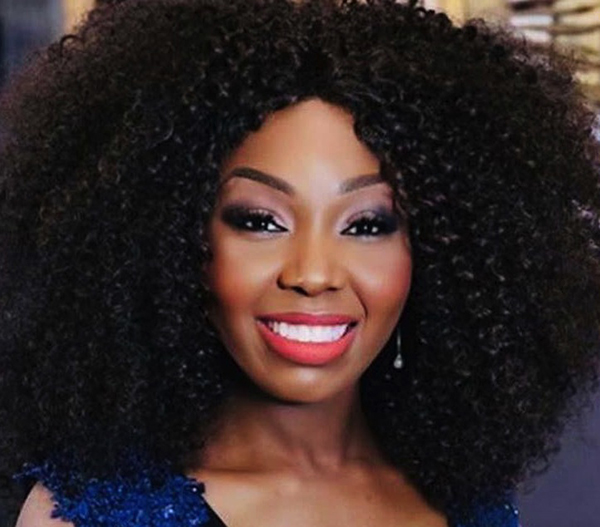MAKING A DIFFERENCE
By Darlene Donloe
Contributing Writer
The mission of InnerCity Struggle is to build a powerful and influential movement of youth and families on the eastside of Los Angeles to promote healthy, safe, and nonviolent communities.
The eastside of which they speak is comprised of the communities of Boyle Heights, unincorporated East Los Angeles, El Sereno and Lincoln Heights.
Maria Brenes is the organization’s passionate and dedicated executive director.
“I wanted to work here because it’s a nonprofit that supports the community to have a voice and decision-making that impacts lives and neighborhoods and families,” said Brenes, who has been with the organization for 19 years and its director for 15 years. “I strongly believe in empowering the people who have been impacted by social and economic injustices.”
Brenes said “the community” needs to have a seat at the table.
“They need to be there,” she said. “We want them to weigh-in on public policy that shapes opportunities for them, their future, their children and the community. It’s about developing leadership from the ground up. It’s about educating the eastside of Los Angeles.”
At Innercity Struggle, they believe everyone deserves dignity and respect. They also believe that those who have had opportunities to achieve higher education have an obligation to open up opportunities for others. To them, working in alliance with other communities is important.
“It’s more powerful if we hold hands and demand justice together,” Brenes said. “That’s what we believe. There is going to be a racial reckoning. Let’s say Black Lives Matter. We need to stand in alliance with that because it will lift up our community as well. It’s important for the eastside of L.A., which is historically a Latinx and Chicano community that has had its owns history of social movements, that we continue to advance change and build leadership.”
Brenes describes InnerCity Struggle as an anchor for the kind of work that supports young people in the pursuit of achieving their dreams for higher education.
“This is crucial for our young people,” said Brenes, a married mother of two. “They are carrying so much trauma. Now they are disconnected from schools. They need mentorship to get through this difficult period.”
East Los Angeles is home to some of the oldest neighborhoods in Los Angeles. At one time, it was among the most diverse. Now it’s predominantly a Latinx community with residents from Mexico and Central America.
“The eastside of Los Angeles has been systematically neglected and suffering from structural racism,” Brenes said. “People of color are undervalued. This is a community that has been a gateway for immigrants. Some are hopeful for the American dream.”
Brenes said East L.A. is the birthplace of the Chicano movement.
“In 1968, young Chicanos attended overcrowded, dilapidated schools that didn’t expect much of them,” Brenes said. “The curriculum was not focused on their success. It only prepared them for a low-wage economy.”
InnerCity Struggle organizes youth and families. Through its youth work, they have a component called united students.
“We develop the leadership of high school students,” Brenes said. “We sponsor clubs, recruit students to get involved. It’s a call to action. Young leaders train younger people.
“We learn from previous social movements like civil rights and the anti-apartheid movement. We think about how they went about advancing change. What were the strategies and how can we apply those now?”
The founders of InnerCity Struggle formed an organization in the spirit of the civil rights movement, one that would seek to organize residents in service of their own vision.
“We sought alternative solutions to reducing crime and violence that wouldn’t involve criminalizing our communities,” she said. “Instead, we invested in developing grassroots leadership that could serve as a progressive and powerful voice for the Eastside.”
When InnerCity Struggle began organizing in 1994, residents identified a myriad of urgent concerns affecting their lives: gang violence, under-resourced schools, poor economic prospects, a lack of access to adequate health care and education.
“As we began our journey to fight for a stronger eastside, many residents identified public education as the most pressing issue,” said Brenes, who has a master’s in education from Harvard and studied ethnic studies at UC Berkeley. “After many years on the frontlines of public education reform, significant victories under our belt, our residents knew that if we wanted to transform our neighborhoods, we needed to become a multi-issue organization.”
A priority of InnerCity Struggle has been to support policies that open up greater opportunities for college access, which makes kids better prepared.
“We refuse to accept what has been allowed, which is a cultural failure,” Brenes said. “We’re proud of the youth. Not only do we help train them, but we also provide academic support. Sometimes they don’t have access to individualized counseling. We provide that service to our youth leaders.”
For nearly a decade, 100% of the students with InnerCity Struggle graduate from high school. More than 80% go on to a four-year university.
“We provide that critical support for them to reach their goals,” Brenes said.
When the pandemic hit last March, Brenes said they, too, had to pivot but were ever determined in their quest for the kids to succeed.
“Our commitment to our mission is undeterred, it’s unchanged,” Brenes said. “The way we go about engaging the young people and families is unchanged. There were pivots to ensure the safety of our youth, community members, resident members, staff and volunteers.”
Brenes said it was important for InnerCity Struggle to distribute digital tools to the people they work with — so they could remain engaged.
“When schools closed, it immediately felt how deep and stark the digital divide is in our community,” she said. “We’ve heard that in other communities as well. This has been unlike any other year,”
When COVID-19 hit, InnerCity Struggle distributed $150,000 in cash assistance to 300 families. They also connected them to other public resources. They also help undocumented families who don’t qualify for government assistance resources. The organization helps them navigate unemployment, eviction protections, and more.
Brenes admits there are preconceived notions about the people in East L.A.
“At the moment people are not getting or understanding enough the level of pain and suffering because of the pandemic,” Brenes said. “Everyone is being impacted, but not in the same way. The pandemic is not being lived the same way by everyone.
“We are hopeful with the shift at the federal level,” she added. “We need equity. I see young people stepping up in ways that leave me in awe. Some are adding jobs, or being the teacher to younger students.”
For Brenes, there have been some striking misconceptions about communities of color.
“For communities of color, it’s been thought poverty is our fault, incarceration is our fault, and so is addiction,” Brenes said. “I think there is more conversation happening through Black Lives Matter, the outcomes whether mass incarceration, drop out, unemployment, or poor health.
“All of this is rooted in systemic racism,” she added. “We have to lift up our truths. Despite the systemic violence in our communities — we have survived and shown love to ourselves, children, and communities.
“It’s time to set the stage for something better in this country. This moment gives me hope. We demonstrated that change is possible. It’s not easy, but it’s possible. We are hopeful. There is a better tomorrow. That is what has kept us going.”
“Making a Difference” is a weekly feature profiling organizations that are serving their communities. To propose a “Making a Difference” profile, send an email to newsroom@wavepublication.com.
Darlene Donloe is a freelance reporter for Wave Newspapers who covers South Los Angeles. She can be reached at ddonloe@gmail.com.













